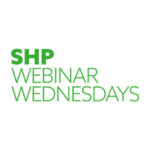Alaana Woods – Commercial Director at Bupa Health Services – shares small, but achievable steps to help promote women’s health in the workplace.
 Over the past few years, organisations have come a long way in recognising the importance of supporting diversity and inclusion in the workplace. Because of this, there has been a 20% rise in women in full time employment over the last 50 years.
Over the past few years, organisations have come a long way in recognising the importance of supporting diversity and inclusion in the workplace. Because of this, there has been a 20% rise in women in full time employment over the last 50 years.
As organisations become more gender diverse, acknowledging and supporting women’s health in the workplace has become increasingly important, however, there still seems to be a taboo around the subject.
[1]Business leaders need to recognise and address women’s health. This will have both short-term and long-term positive effects on your business and your employees. It has been reported gender diverse businesses are 25% more likely to financially outperform their counter parts. Whilst also increasing innovation revenues by 19%.
Many of the recommendations below can also be easily adapted and incorporated into remote working styles whilst many offices are closed in the UK.
Educate your team
It is the responsibility of business leader’s to educate both themselves and thier teams on women’s health and any issues associated with it. It’s important that managers and leaders are well-educated on the signs and symptoms associated with women’s health that may affect their working life, such as with menopause many women suffer with memory loss or anxiety which can impact their performance at work. Knowing how to support with this is essential in keeping these women in the workplace.
A good place to start is making sure that line manager and manager training is up-to-date and they feel confident in speaking to their female colleagues about what they may be going through.
Sharing information and running internal campaigns that promote female health in the workplace is one-way businesses can do this. Awareness days are also a great way to show what you are doing women.
Simple things like an infographic are a great way of raising awareness of symptoms of women’s health events, whether this is periods, conditions associated with periods, pregnancy, fertility struggles or menopause. Whilst working remotely data and statics on female health topics can be shared via internal emails or on company intranets.
Normalise conversations
Once managers are informed and educated on women’s health events the next step is to take a look at normalising and encouraging conversations around women’s health whilst at work, whether this is in the office or working remotely. Topics, such as fertility, menstrual cycles and menopause are often viewed as taboo and women may not feel comfortable talking about symptoms associated with them such as heavy bleeding or loss of concentration.
The impact of all of female health can have huge physical and mental health implications on women. Those experiencing conditions such as endometriosis, fertility concerns and other gynaecological issues can often feel isolated and alone and this is why it is so important to start these conversations or be approachable so they can open up about how they are feeling.
Policies
We then need to look at policies, do you have the policies in place to support with the changing needs of women or can you adapt current polices to fit with this? Policies need to reflect the implications that the COVID-19 pandemic has had on our physical and mental health. They need to represent menopause, fertility treatment as well as things like bereavement and musculoskeletal.
For companies who don’t have a flexible working policy, this is the perfect time to introduce one. While employees, particularly women, are juggling childcare they need to work flexibly, the 9 to 5 way of working is no longer the norm. Make sure your teams are aware of the flexible working policy and that you don’t expect them to be working during office hours.
Where there used to a ‘coat on the back of chairs’ culture it now feels as if there is pressure to be seen online during working hours. As a manager, you need to remove this culture and be flexible. Make sure your people know that they don’t need to respond to emails straight away or if they need to pick up the phone to you, they can.
With many businesses currently working from home, managers can promote a flexible working policy for remote working through communicating to their team that they do not expect them always be online or available.
Access to healthcare services
Since the COVID-19 pandemic, more women have turned to Google to search queries regarding their health. Over the past 12 months there has been a 160% increase in the number of searches on menstrual cycle-related queries. Whilst the search volume of menopause signs, age and symptoms have also increased.
Another issue has been around family planning and pregnancy, access to these services has been difficult and we have seen a big reduction in prescriptions of the pill and the morning after pill. Pregnant women have also been unable to access antenatal care and have been concerned with their safety when visiting a clinic, or even whether the clinic was open.
Essential health checks like smear tests and mammograms have been postponed meaning that many women missed the opportunity to attend potentially lifesaving appointments. It is estimated that almost a million women have been unable to attend a breast screening due to the COVID-19 pandemic and around 600,000 smear tests were missed between April and May.
Businesses should be responsible for putting extra provisions in place to allow their employees to access essential services. This is possible through a number of initiatives such as, Employee Assistance Programme (EAP), virtual GP services or company funded health checks, such as health assessments which can include smear tests or mammograms.
 Hear Alaana speak about equality at work and the role women’s health plays in it, in this on-demand SHP webinar.
Hear Alaana speak about equality at work and the role women’s health plays in it, in this on-demand SHP webinar.
Alaana was joined on the panel by: Poppy Jaman OBE, Co-founder of Mental Health First Aid England; Caroline Dunne, MD and Head of Employee Relations, EMEA at Goldman Sachs; and Alex Perry, CEO, Bupa Insurance. They discussed:
- Why gender inclusion is beneficial for businesses commercially, particularly as we enter a time of economic hardship
- The link between mental health and women’s health events, such as menopause, periods, fertility struggles, pregnancy, difficult childbirths and motherhood
- Impact of COVID-19 on women’s health and work
- Domestic violence
- Steps businesses can take in order to support women’s differing health needs, including educating managers, internal campaigns, policies and what’s worked well in other businesses.
You can also read a Q&A on the subject, here…
[1] Taken from Alaana’s speaker notes on Striving for Equity
Feature image courtesy of Khunatorn/Adobestock
The Safety Conversation Podcast: Listen now!
The Safety Conversation with SHP (previously the Safety and Health Podcast) aims to bring you the latest news, insights and legislation updates in the form of interviews, discussions and panel debates from leading figures within the profession.
Find us on Apple Podcasts, Spotify and Google Podcasts, subscribe and join the conversation today!

 Over the past few years, organisations have come a long way in recognising the importance of supporting diversity and inclusion in the workplace. Because of this,
Over the past few years, organisations have come a long way in recognising the importance of supporting diversity and inclusion in the workplace. Because of this,  Hear Alaana speak about
Hear Alaana speak about 